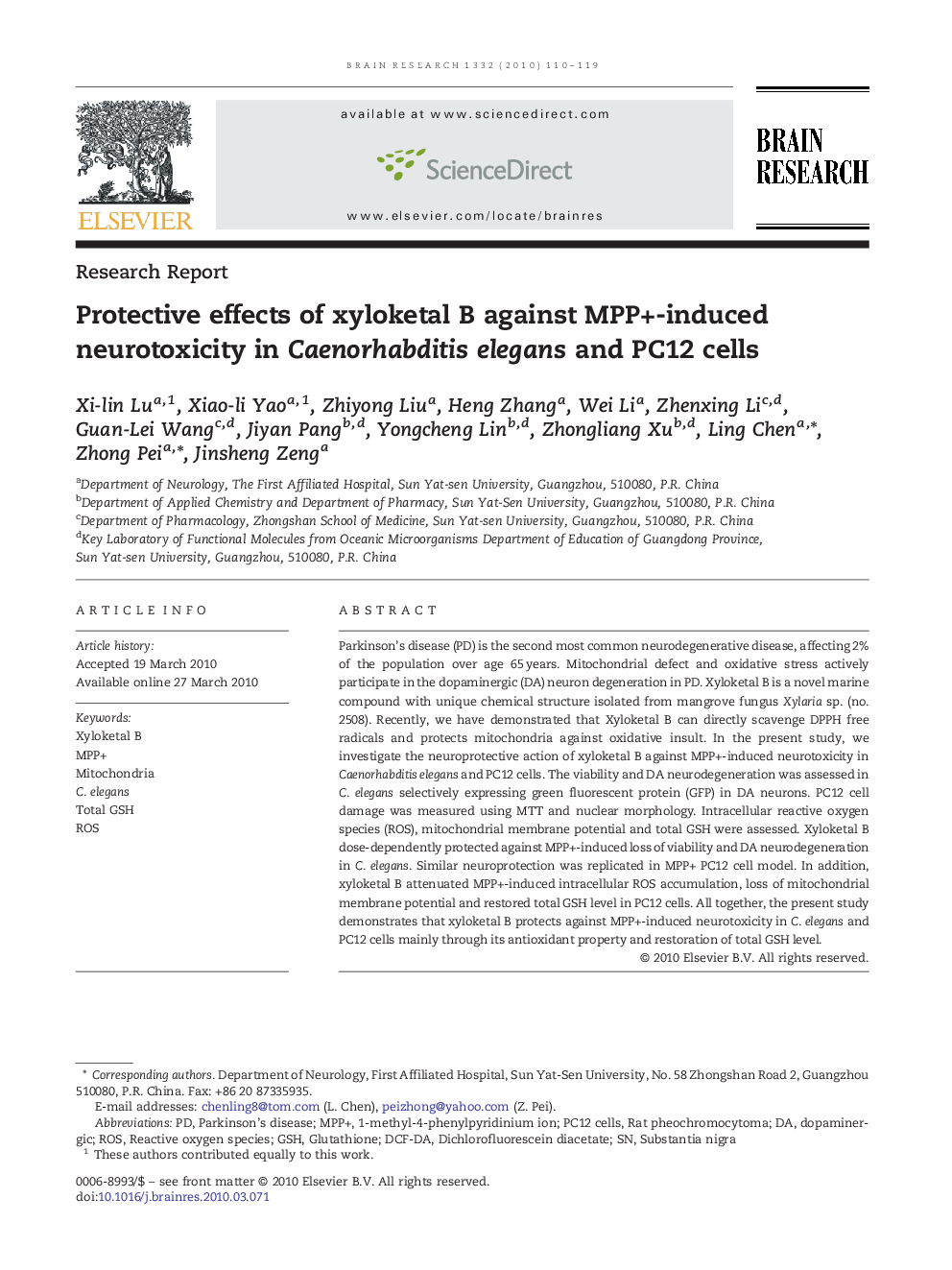| Article ID | Journal | Published Year | Pages | File Type |
|---|---|---|---|---|
| 4327022 | Brain Research | 2010 | 10 Pages |
Parkinson's disease (PD) is the second most common neurodegenerative disease, affecting 2% of the population over age 65 years. Mitochondrial defect and oxidative stress actively participate in the dopaminergic (DA) neuron degeneration in PD. Xyloketal B is a novel marine compound with unique chemical structure isolated from mangrove fungus Xylaria sp. (no. 2508). Recently, we have demonstrated that Xyloketal B can directly scavenge DPPH free radicals and protects mitochondria against oxidative insult. In the present study, we investigate the neuroprotective action of xyloketal B against MPP+-induced neurotoxicity in Caenorhabditis elegans and PC12 cells. The viability and DA neurodegeneration was assessed in C. elegans selectively expressing green fluorescent protein (GFP) in DA neurons. PC12 cell damage was measured using MTT and nuclear morphology. Intracellular reactive oxygen species (ROS), mitochondrial membrane potential and total GSH were assessed. Xyloketal B dose-dependently protected against MPP+-induced loss of viability and DA neurodegeneration in C. elegans. Similar neuroprotection was replicated in MPP+ PC12 cell model. In addition, xyloketal B attenuated MPP+-induced intracellular ROS accumulation, loss of mitochondrial membrane potential and restored total GSH level in PC12 cells. All together, the present study demonstrates that xyloketal B protects against MPP+-induced neurotoxicity in C. elegans and PC12 cells mainly through its antioxidant property and restoration of total GSH level.
